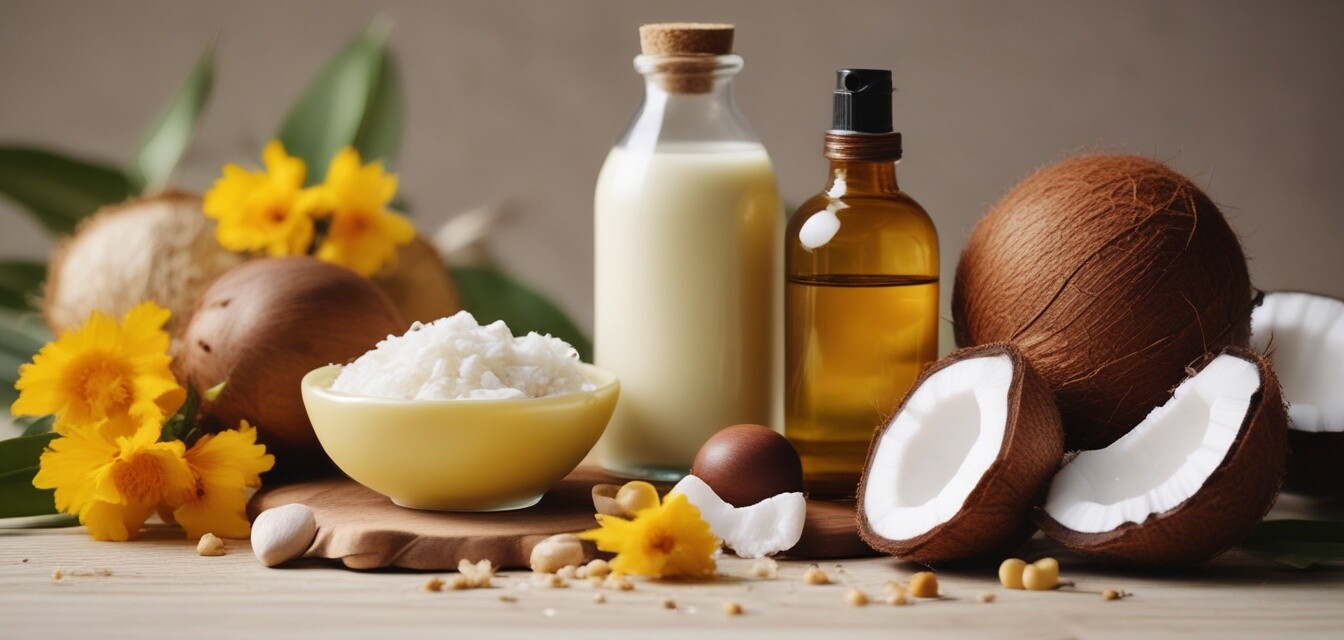
The Best Organic Bases for DIY Skincare
Key Takeaways
- Organic bases are essential for creating effective DIY skincare products.
- Common organic bases include oils, butters, and waxes.
- Understanding the properties of each base can help in crafting personalized skincare solutions.
- Incorporating organic bases is a sustainable and eco-friendly choice for skincare.
In today's world, more individuals are looking to create their own skincare products at home. With a focus on organic and natural ingredients, DIY skincare not only allows for customization but also ensures you know exactly what you are putting on your skin. In this guide, we explore the best organic bases for DIY skincare and the benefits of crafting your unique formulas at home.
Why choose organic bases for DIY skincare?
Choosing organic bases for your skincare formulations carries numerous benefits. Here are a few reasons to consider:
- Natural Ingredients: Organic bases are derived from natural sources, free from chemicals and pesticides.
- Effectiveness: Many organic ingredients have been proven to be effective in nourishing and cleansing the skin.
- Customization: DIY skincare allows for personalization based on your skin type and preferences.
- Sustainability: By creating products at home, you reduce packaging waste and support eco-friendly practices.
Top Organic Bases for DIY Skincare
When crafting your skincare products, consider these popular organic bases:
| Organic Base | Description | Common Uses |
|---|---|---|
| Coconut Oil | A moisturizing oil rich in fatty acids. | Lotions, creams, lip balms |
| Shea Butter | A thick, creamy butter known for its moisturizing properties. | Body butters, hair masks |
| Almond Oil | A lightweight oil ideal for all skin types. | Serums, facial oils |
| Beeswax | A natural wax that gives products a smooth texture. | Salves, balms, emulsions |
| Aloe Vera Gel | A soothing gel known for its hydrating properties. | Moisturizers, soothing creams |
How to use organic bases in DIY recipes
Using organic bases in your skincare formulations is easy. Here’s a simple guideline:
- Choose your base: Depending on your skin type and the product you want to create, select an appropriate organic base.
- Measure your ingredients: Use precise measurements to maintain consistency and effectiveness in your formulations.
- Melt and mix: For solid bases like shea butter or beeswax, melt them gently before mixing in oils or other ingredients.
- Allow to cool: Once mixed well, allow the mixture to cool before transferring it to containers.
- Label and store: Always label your DIY products with the date and ingredients Used for safety.
Storage tips for DIY skincare products
To extend the shelf life of your DIY skincare formulations, adhere to these tips:
Storage Tips
- Store products in dark, cool places to minimize light exposure.
- Use airtight containers to prevent contamination.
- Label jars with usage dates and ingredients to keep track of freshness.
- Avoid using your products after they show signs of spoilage.
Benefits of making your own organic skincare products
Crafting your own skincare products can be highly rewarding, offering several advantages such as:
- Control over ingredients: Ensure only the best organic ingredients are used.
- Cost-effective: Create high-quality products at a fraction of the price of store-bought ones.
- Environmentally friendly: Reduce waste and support sustainable practices.
- Personal satisfaction: Enjoy the satisfaction of creating something beneficial for your skin.
Key considerations when choosing organic bases
Before selecting organic bases for your DIY skincare products, keep these considerations in mind:
- Skin Type: Different bases cater to varying skin types, so choose accordingly.
- Allergies: Always check for potential allergens in plant-based ingredients.
- Source: Choose organic bases from reputable suppliers for the best quality.
Pros
- Customizable to personal preferences.
- Utilizes natural, organic ingredients.
- Cost-effective solution for skincare needs.
Cons
- Requires knowledge of formulations.
- Potential for allergic reactions if not careful.
- Shorter shelf life compared to commercial products.
Conclusion
Creating your own DIY skincare products using organic bases is an enriching experience. Not only do you have full control over what you apply to your skin, but you also contribute to a more sustainable lifestyle. Explore more about crafting your products by checking our guide on skincare routine tips and delve deeper into organic options by visiting our body lotions & oils section.
Start experimenting with these organic bases and enjoy the journey of transforming your skincare routine with personalized, effective products that resonate with your lifestyle and values!


